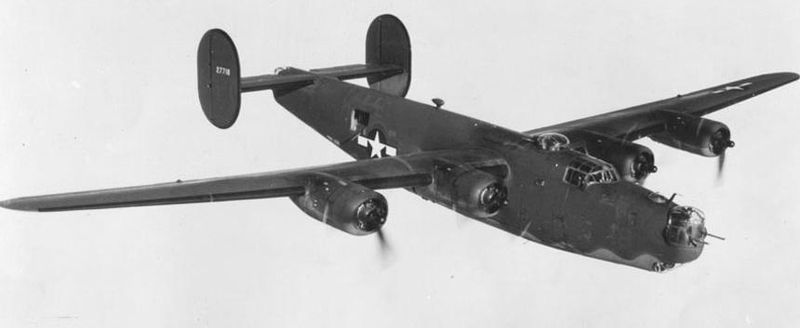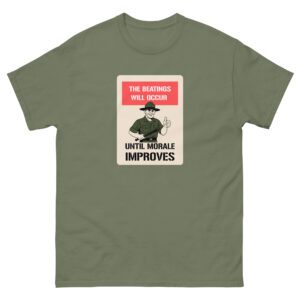Don't miss our flash to bang SALES!
WW2 Air Corps Female Instructor Pilot Shares her Story of Service
World War II started in December, 1941, at which time I was twenty-three years old. I spent from June, 1942 until June, 1946 in the Air Force (then called the Army Air Corps). I was gone from home four years to the day–a coincidence. I was a member of the Reserves, and as such, was subject to call at any time.

I was in training from June, 1942 until March, 1943. I was trained to be a pilot instructor as I had had pilot training before the war. I served in the U.S. Training Command. I trained student pilots advanced single engine flying (pursuit pilots), then trained everyone (bomber pilots). I trained them in planes of the day, B-17, B-26, B-25, etc. I flew and trained in almost all military aircraft.
It was a Sunday morning and I was at work when I heard about the attack on Pearl Harbor. I didn’t have any idea where or what Pearl Harbor was. I soon found out. My reaction was typical of the day. “How can they dare attack the United States?” and, certainly, the sneak attack of Pearl branded them and caused a great surge of patriotism in the U.S.
I was stationed at Yuma, Arizona, and was instructing a new pilot in a B-26. Yuma was a gunnery school and I was flying a formation with a B-17, showing the student the gunnery range, which extended from Yuma almost to Phoenix.
The purpose of the formation was to allow the student gunner in the B-17 to fire at a target (five by twenty feet) being pulled behind the B-26. To make it short, a student in the top turret fired at us, and hit us with 50 caliber rounds, 35-40 times before I could break away. He had shot out one of the engines, the rudder control, and the electric control panel, as well as the hydraulics system. I learned of the latter when I tried to lower the gear for a landing on the field. The bottom line was no hydraulic system, no flaps, no gear, and now we were committed to landing with only one engine. I had to shut it down in order to control the plane–remember I had no rudder control.
We went across the field and hit some high tension electrical wires, and I ducked under them. I picked out a row of grapefruit trees, and landed between two rows. We carved a path of 125 trees, twisted the fuselage from the wing, and I was pinned under the wreckage. The crew of four worked away, but I was still under the control pedestal. I had shut off all the switches and gas valves to reduce the chance of fire.
The crash personnel were there immediately as I had alerted them early on at the time of the incident. Although no one was killed, and I was the only one seriously injured, the plane was completely demolished. (As a footnote, I was commended for having brought the plane down without fatalities.) –A long time ago–
Everyone’s life changed at home during WWII. Women became more actively employed in jobs away from home. The home as a family base was in many instances destroyed. Death, relocation, and time changed the concept of a family. Then, the family was the center of learning, social graces, etc. After the war, people were moving toward individuality.
After WWII, we all (children) went our separate way. I was married and moved to california, so my ties to the family, as strong as they were, were somehow changed.
Being in the service, I wasn’t affected by rationing except for gasoline rationing. The concept was simple in theory, but tough to administer. The idea was that each person was given stamps for food in an equivalant amount. Some food was not rationed, and as such became more generally used. The rationing was for sugar, meats, and gasoline. However, someone who was involved with rationing could describe the system. The simple idea was to distribute items in short supply on a fair basis. Remember, the U.S. was also supplying food and materials to our allies. Rationing led to black market sales of the products rationed.
There is no romance, charm, or security about any war. The only thing about war (at least then) was the unification of the people in the U.S., and with some of our allies.
When war was declared, few sought ways to avoid participating, but gave of themselves to preserve our way of life, freedom for everyone. Those who served in the war gave up much, some their lives, that this country could have the rights that people of today take for granted. Stop and remember that from the beginning of time, a few people have given so much for their fellowman.
It is easy to lull yourself into believing that what we have will always be there. We may have to sacrifice more to preserve the future of others.
Check out a good book on the topic:
#affiliates
Popular Products
-

The Beatings Will Occur
Price range: $19.50 through $34.00 Select options This product has multiple variants. The options may be chosen on the product page -

Freefall Your Feelings Away
Price range: $19.50 through $28.00 Select options This product has multiple variants. The options may be chosen on the product page -

Keep Calm I’m a Warrant Officer
Price range: $20.00 through $28.50 Select options This product has multiple variants. The options may be chosen on the product page -

Saint Patrick’s Day Rescue Swimmer
Price range: $25.00 through $37.50 Select options This product has multiple variants. The options may be chosen on the product page




